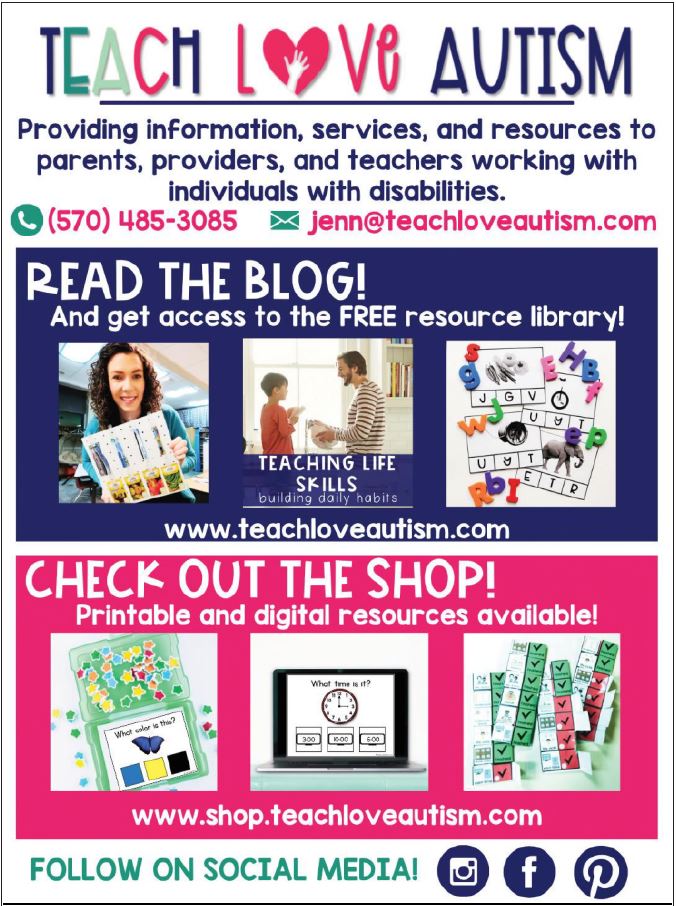want. Try to think more about why the child is behaving that way instead of immediately categorizing it as a problem behavior.
Many times, autistic individuals struggle with communicating, and their behaviors are misunderstood. As a parent, teacher, or provider, I believe it is our job to assist them with finding their means of communication. This could be verbal, using a communication device, or even sign language. Oftentimes, speech therapy can be widely beneficial to support individuals with communication.
TEACHING STRATEGIES THAT SUPPORT STRENGTHS
"If they can't learn the way we teach, we teach the way they learn." – Lovaas
In my own classroom, I have used some very unique teaching methods to support my students. Some have included kinesthetic movement, music, and real-world experience. They may not sound that different, but the same traditional instructional strategies don't always work, and being flexible when instructing autistic individuals is important. There is a lot of research about different methods and what works best, but again I will say that looking at the individual and seeing what works best for them is the best method.
How can you know what those are? I often would look at a student's strengths and interests. If they were interested in music we would create songs to teach them content. If they liked being active we would create actions or movements that connected with the information. Some of us learn better by doing, and using a real-world experience can provide the most value. For example, I could teach a student how to cook something by reading a book about it, or we could go in a kitchen and make it. Which strategy would you learn the skill from better? It may take time to find what strategy is best, but once you do, using it can be important in helping that individual learn and maintain skills.
In conclusion, I am not an expert in this field, and I love that I am constantly learning new things. There are many ideas and perspectives on autism and I try to stay open to all of them. Ultimately, I believe we need to find a way to strengthen our awareness about individuals with I
autism, to support them. If that means thinking outside the box and doing something I never thought I would, I embrace it. I am thankful for the time and experiences I have gained by working with these individuals. •
ABOUT THE AUTHOR:

Jenn Adams is a special education and elementary teacher living and work in Pennsylvania. She has taught in multiple classrooms, grade levels and settings including regular education, special education, and alternative education. She has taught grades Pre-K, 1st, and 5th12.Currently, Jenn works for a public cyber charter school teaching students in grades 5th through 8th
in an autistic support virtual classroom. Jenn obtained her Bachelor's degree in elementary and early childhood education in 2007 from Millersville University. She also obtained her Master's degree in 2014 in special education from Saint Joseph's University. Jenn also added the credentials of becoming a registered behavior technician (RBt) working closely with students with autism and intellectual disabilities working with principles of Applied Behavior Analysis. Lastly, Jenn is currently pursuing her principal's certificate from California University of PA. In her 14 years in education she truly has found that building relationships is what needs to come first and loves learning new ways to reach her students. During her time not spent in the classroom Jenn conducts parent training with colleagues in the special education field and provides information through her blog, website, and social media channels all called Teach Love Autism. Jenn also works hard every day to find a work and life balance and believes that is the key to happiness in doing what you love.
